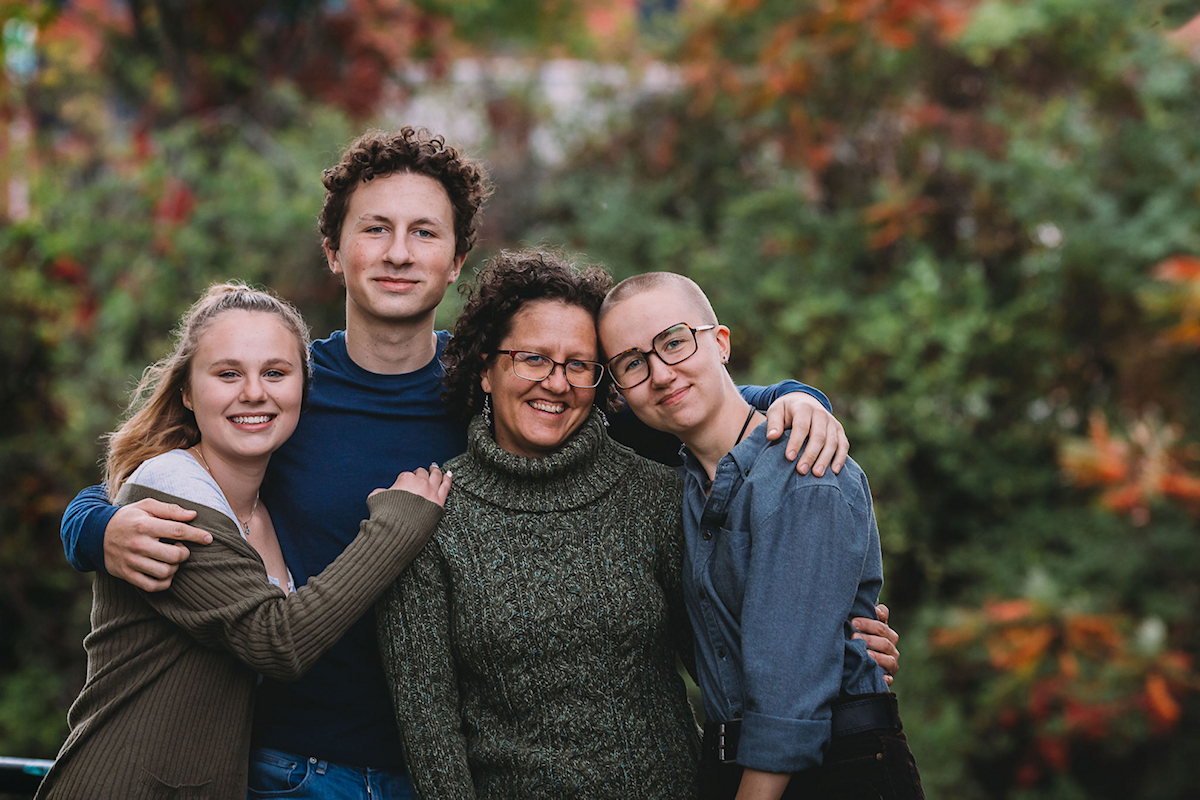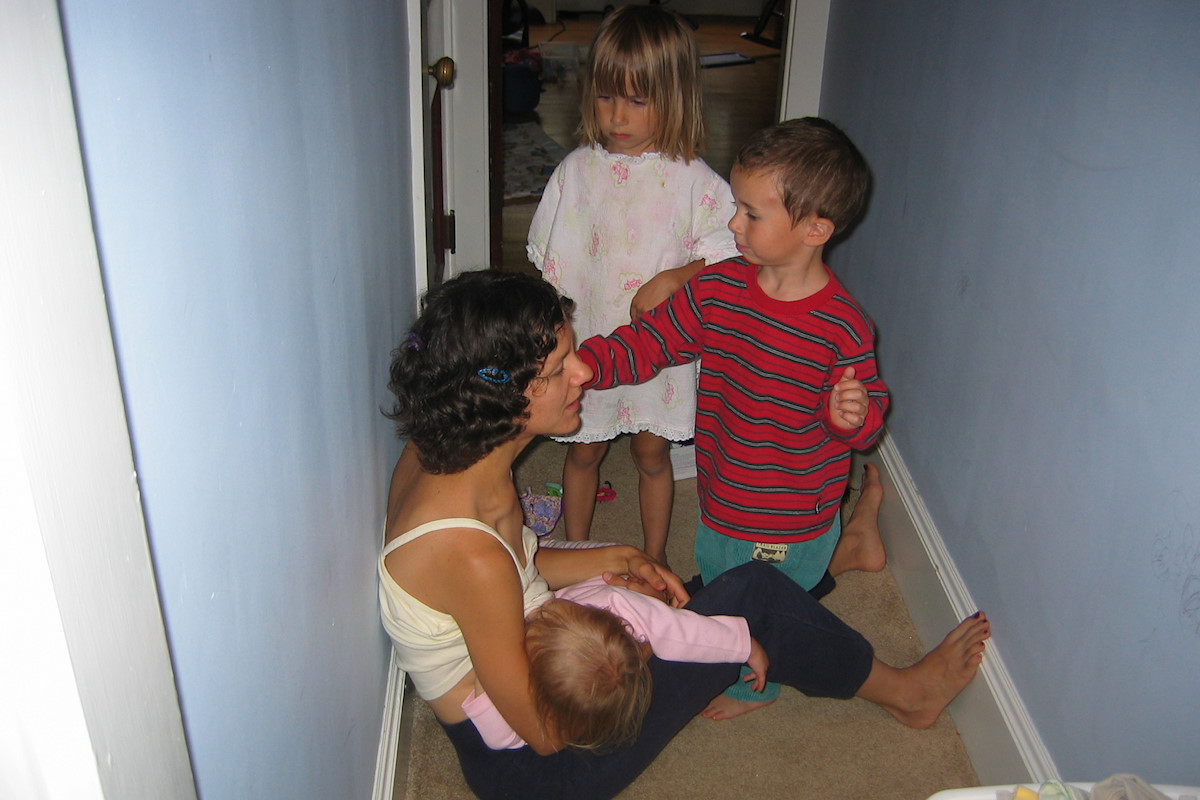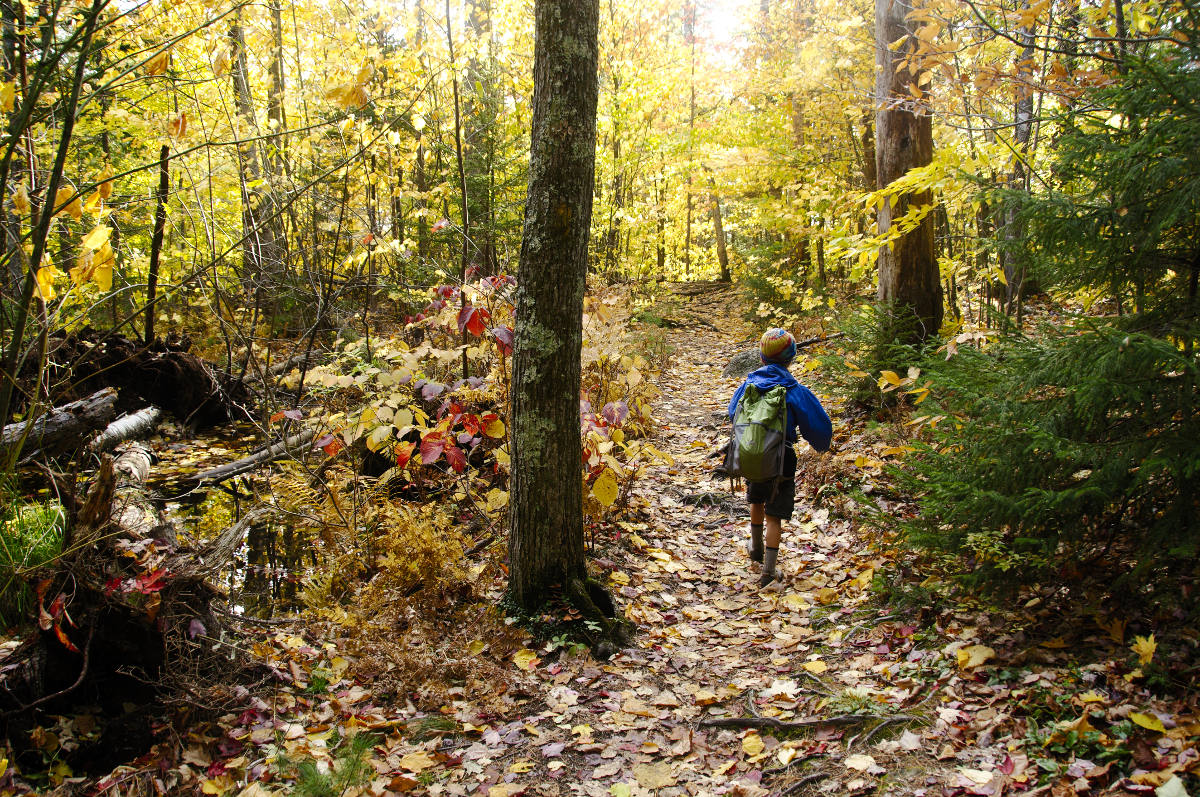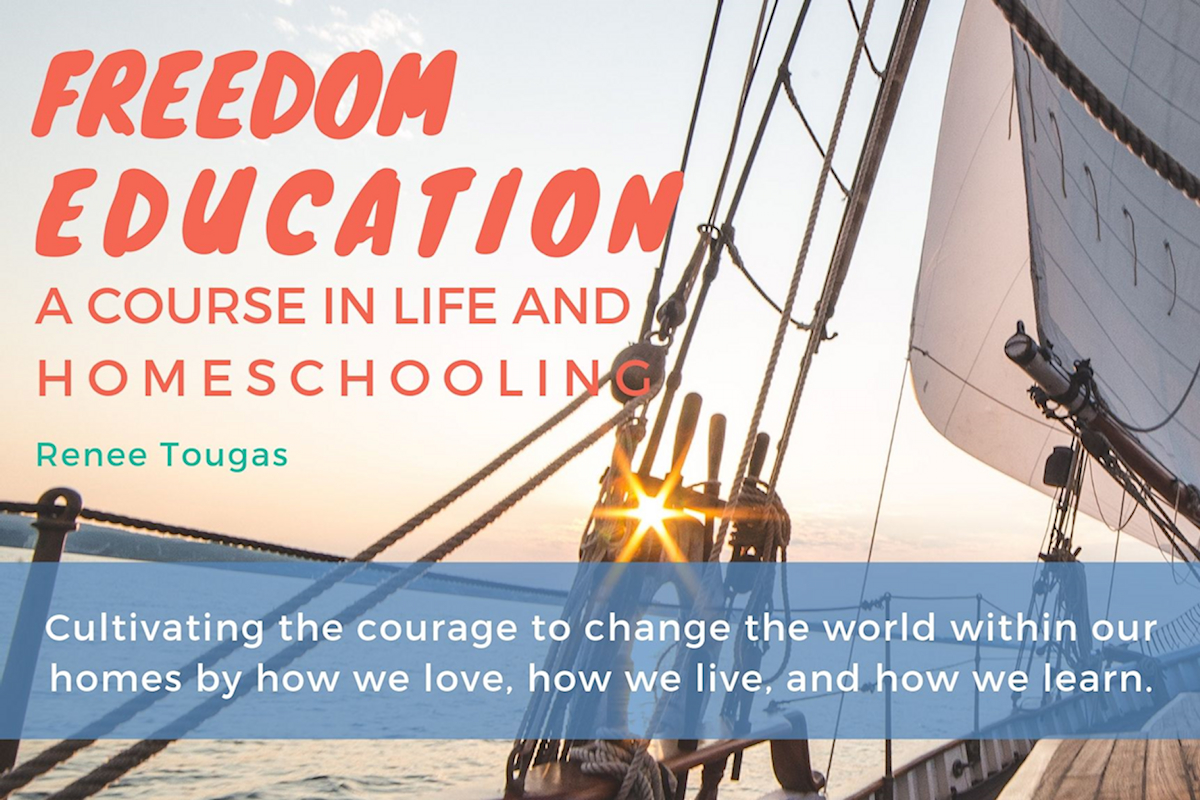Homeschool & Education
Hi, I’m Renee. I used to be a homeschooler, until my kids all finished their high school education and moved on to university degree and college training programs. When the baby started post-secondary schooling I retired from homeschooling with the customary pension. (Ha!) Just to be clear, for any complete newbies dropping by, there is no pension.
Relatedly, in the jurisdictions we lived in during our child-raising years there was no financial support or assistance for homeschooling resources. And during the crucial teen years there was no access to publicly funded options, including dual enrolments or public-homeschool hybrids of any kind. Homeschooling for our family was not just an educational decision. It was a lifestyle decision, with quite a few implications, not all positive.

fall 2020, the year I retire from homeschooling
I have a Bachelors degree in Education and during my studies I was taught educational theories, developmental psychology, and classroom teaching. When I became a mother and then homeschooler, I put those ideas to the test, learned new ones and practiced living into the freedom of choosing the “best fit” for our family, for my children. Now, as a graduate student in Educational Studies, I critique the school system and study alternatives, with the hopes of affecting change in a context outside of my own family and home.
Our homeschool practice was an eclectic mix influenced by unschooling, Charlotte Mason, Waldorf, and Leadership Education educational philosophies. What this looked like for each child and each stage changed through the years but the common thread was our commitment to non-coercive, learner-centered, family-supporting, interest-driven, adult (mentor)-facilitated learning.
We endeavored to provide our children a self-directed education:
- designed for the child and their unique needs & interests
- in the context of family life and based on core family values
- as a foundation for a journey of lifelong learning
For us, homeschooling/home education was an attitude towards learning, work, life, and study. It was not school-at-home. It was not a set of lessons, the completion of a workbook, or preparation for college (until our children indicated they wanted college preparation and readiness).

fall 2004, the year I started the writing in this blog
I’ve been writing this blog for nearly 20 years and so quite a bit of homeschooling and education related content has accumulated here. I’ve also produced presentations and courses through the years.
This blog has grown and developed organically, just like life. My vision has never been to create a comprehensive homeschooling resource. I write about my life and to the extent that homeschooling is a part of my life (and it is, a big part of my life) homeschooling is a part of this blog. So, most of the homeschooling posts on my blog are not how-to homeschool, they are bits and pieces of the story of our homeschool experience.
My homeschool-related writing also documents the on-going evolution and development of my educational philosophy and pedagogy.
During the timeframe of my Master’s degree, 2021-2024, a lot of my writing energies were directed into my assignments, some of which are included in the links below.
Directory of homeschool and education writing
I like to use multiple levels of tagging in blog posts to help me organize my writing into different groupings. You don’t need to worry about the organizational structure, it’s basically hidden but it explains why and how the subject headings below exist as they do.
Once you get scrolling through posts (20 years worth!) you may get lost but you can always navigate your way back to this page by clicking on Homeschool & Education in the menu at the top of every page on this blog.
Homeschool blog posts, by stage:
Every post written on my blog that makes reference to my pedagogy or parenting practice, or is about the kids’ doings (the blog started as a family logbook of sorts) has been tagged with the broad educational stage corresponding to that experience or idea. Granted, these stages are arbitrary and contested but they roughly demarcate the sequence of our kids’ growing and educational years, minus the preschool years.
It absolutely irks me that the language of schooling is the normative reference point of childhood development. However, this terminology is recognizable to a schooled audience, which we all are, so it’s useful, if not truly representative of my philosophy.
Please note these posts may not contain any “useful, applicable, or actionable” ideas. Some do, but most don’t. Most of my blog posts published during my children's growing years were written as stories of what my family was doing or what I was feeling in that experience.
So, here are all the blog posts that reference the following broadstroke kid-growing and child-raising stages:

Homeschool blog posts, by topic:
As we were going through the homeschooling years I would sometimes write blog posts that were specific in focus (not just a rambling story about visiting a farm) and contained what I thought might be useful information, thought-provoking or actionable ideas, or resources for other parents and homeschoolers.
These categories evolved, like everything else on this blog, out of our experience and how I thought about and practiced education. Not all topics are represented equally in terms of number of posts written. You will not find a comprehensive “how to do homeschool reading, science, math, or history” anywhere in my blog writing or in these compilations of posts, but these categories would be as close as it gets.
- Family Life
- Philosophy
- Curriculum & Methods
- Organization & Schedules
- Creativity & Crafts
- Reading & Dyslexia
- Writing
- World Study
- Math & Science
- Outdoors & Nature Study
- Go with the flow
- Homeschooling Through High School
Homeschool blog post series:
- From Homeschool to University
- Project Based Learning Video Presentation
- The Adventure of Learning
- Discipline in a Love of Learning, Freedom Based, Interest-led Homeschool
- Spring Book series
- Creativity in our Homeschool

Academic papers, presentations, articles and school assignments about homeschooling and/or education
This section is in development.
- My first peer-reviewed journal article: Resisting and disrupting neoliberal subjectivity in self-directed education: what can we learn from black homeschoolers
- A radical hope and sustainable solution
Homeschool Courses & Teaching
Courses and teaching for a homeschool audience.
Freedom Education: A Course in Life & HomeschoolingThis course has a unique mix of practical application, personal stories, psychological discussion, and philosophical considerations. We don’t just talk about homeschooling, we explore our biases, assumptions, and beliefs about education, relationships, and family life.
Technology as a Tool in your Homeschool - slideshow and notes from presentation given at the ACPEQ homeschool convention in Laval, Quebec, June 2018.
Project Based Learning - a video recording of a presentation given at the ACPEQ homeschool convention in Laval, Quebec, June 2017.
Homeschooling from the Heart - an audio teaching for the early elementary years.
Learning in Love ~ The Preschool Years - audio recording of a live homeschool teleconference.
Podcasts
Homeschool Unrefined: Where we relax into Highschool Part 1
Need a Pick-Me-Up no matter what the age of your kids? Renee Tougas is the answer. Renee is a homeschool mom to 3 teenaged and young adult children. She is a talented blogger and adventurer. Her words are profound, inspiring and beyond encouraging. You could not ask for a better person to turn your homeschool from frustrating to flourishing! We walked away from this conversation feeling great about what we’re doing now to prepare for life with teenagers.
Homeschool Unrefined: Where we relax into Highschool: Part 2
In this part 2 of our amazing interview with Renee Tougas, we dive into what is great about having high schoolers and touch on a challenge or two that might go along with them. We ask Renee how she handles our ever-changing world of technology with her teenagers. Finally, we dip our toes into a conversation about Renee’s sense of adventure and how it drew their family closer together. This conversation fired us up, not only about having high schoolers, but about loving this adventure called homeschooling.
Hosted by Maren Goerss and Angela Sizer
My Education Philosophy
I put this section at the end not because it is the least important but because it’s the most academic and most people visiting this page are probably looking for the less academic stuff.
For me, philosophy is the most interesting and salient aspect of homeschooling. This is one reason I didn’t write a lot of homeschooling how-to’s during my homeschool years. I'm generally more interested in theory, beliefs, and values underlying the practices. Practices flow from the ideas that inform them, and as I discovered in my own case, practices can help reveal those ideas and beliefs.
I’ve always been way more interested in asking and analyzing why we educate the way we do (as a family or as a society) than I am in explaining to other parents how to teach or facilitate the learning of particular subjects. What people often want is answers to: Tell me how to do this. Whereas my response is: Why do you want to do that?
Yes, practical considerations are obviously important. How we teach math or reading, or how we jump through the hoops of homeschool regulations, these things absolutely matter. But where my interests lie is in asking the questions: How and why did that particular subject become so important? Why is there a hierarchy of subjects to begin with? Why do these regulations exist, what are they trying to achieve? Etc.
Before I’m going to commit myself to action on these things I need to understand the ideas that lie beneath them.
One of the benefits of my graduate studies has been the opportunity, support, and resources to think deeply about my education philosophy.
As part of my studies I wrote a 6K word essay on this subject and I will leave you to peruse that essay for the entirety of my thinking, but I will summarize my philosophy here.
These are my core philosophical axes. Autonomy, freedom, self-determination are the human drive and aim. Relatedness and belonging are our state of being and existence in the world. The directionality of freedom within the condition of non-separation necessitates, predicates, and indicates a relational responsibility, where self-sovereignty is oriented to the flourishing of all.
Many details and specifics are missing from this three-sentence summary. However, I call these my axes because they help me plot a trajectory toward answering various philosophical inquiries and their application to my life, if not always an arrival at a specific destination.
Therefore, my philosophy of education, as it stands today, is not a written one-page summary of ideas about learning, education, or homeschooling. It is not a blueprint to be reproduced but an orientation where educational ideas and the actions they inform must be consistent with human freedom, relatedness, and relational responsibility.
By the way if you want to read a one-page summary I have those too, from previous iterations in the development of my philosophy. You’ll find those in the Appendix of this paper.
Find my full philosophy of education here.






